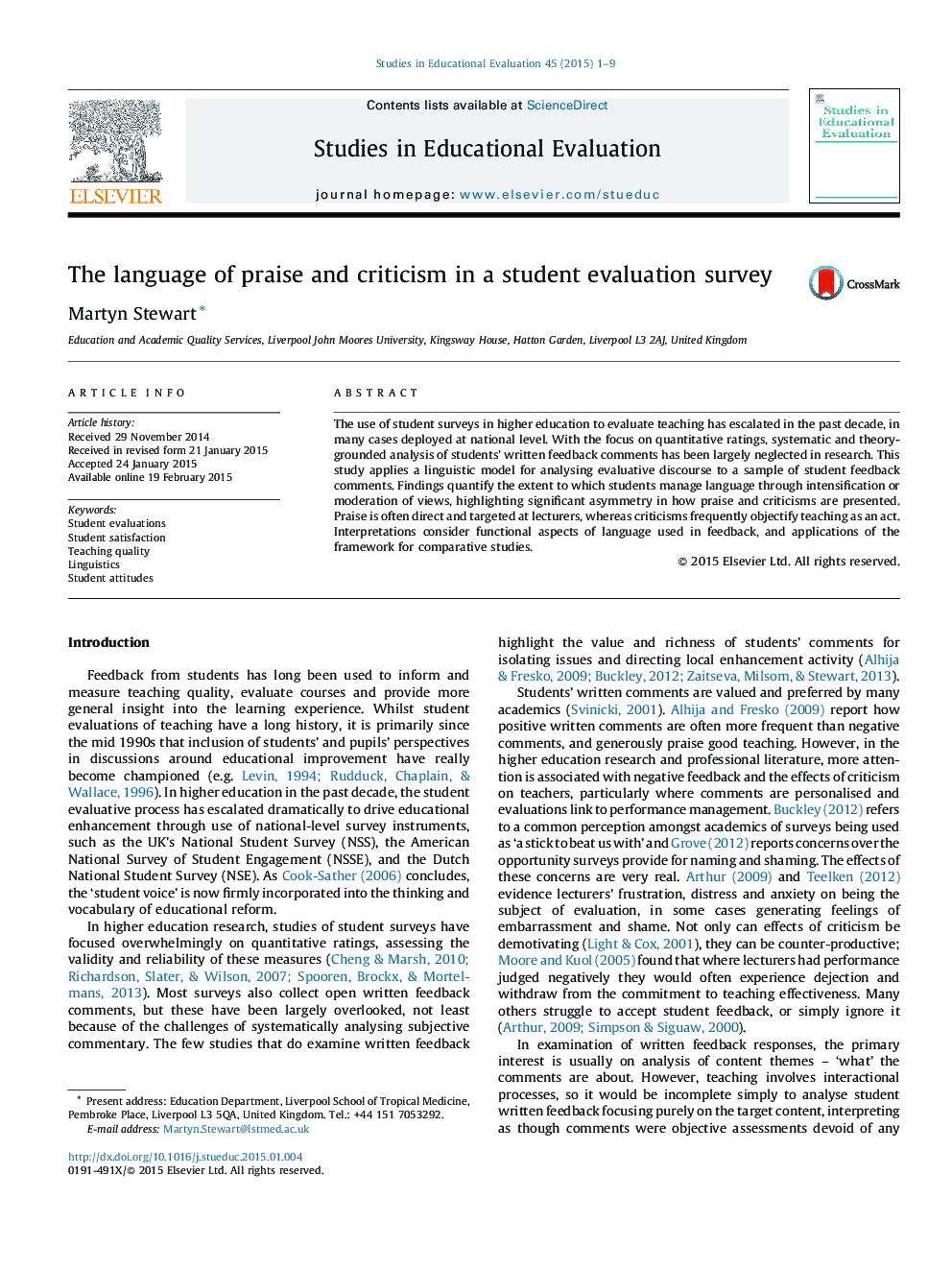| Article ID | Journal | Published Year | Pages | File Type |
|---|---|---|---|---|
| 372608 | Studies in Educational Evaluation | 2015 | 9 Pages |
•Linguistic theory has been used to analyse student evaluative comments systematically.•Positive comments tend to be simpler in form, direct, and to praise lecturers.•Analysis profiles how students manage language to mitigate criticisms.•Negative comments are often grammatically complex and objectify teaching.•Applications are valuable for comparative studies of student evaluations of teaching.
The use of student surveys in higher education to evaluate teaching has escalated in the past decade, in many cases deployed at national level. With the focus on quantitative ratings, systematic and theory-grounded analysis of students’ written feedback comments has been largely neglected in research. This study applies a linguistic model for analysing evaluative discourse to a sample of student feedback comments. Findings quantify the extent to which students manage language through intensification or moderation of views, highlighting significant asymmetry in how praise and criticisms are presented. Praise is often direct and targeted at lecturers, whereas criticisms frequently objectify teaching as an act. Interpretations consider functional aspects of language used in feedback, and applications of the framework for comparative studies.
